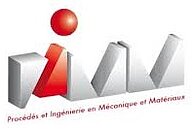Liquid Metal Embrittlement
A metallic material exhibiting ductile behavior can become brittle or present a significant loss of ductility when it is mechanically stressed in presence of a liquid metal. This phenomenon, called LME (Liquid Metal Embrittlement), can induce premature and catastrophic failure. It therefore constitutes an obstacle to the implementation of galvanizing and brazing processes, to the safety of structures in contact with metals or metallic alloys with a low melting point (containing Sn, Ga, Hg, Zn, In, etc.), to the development of nuclear reactors and solar thermal power plants (use of Pb, Na as coolant). In order to predict and therefore avoid failures due to LME, the challenge is to establish a predictive methodology for the intrinsic LME sensitivity for a given liquid metal (or alloy) / structural material system.
The project
This project aimed at a better understanding of liquid metal embrittlement (LME) phenomena down to nano-scales with innovative in-situ experimental techniques and a new theoretical approach for LME to predict brittle cracking in liquid metal. Experimental studies of crack initiation and dislocation emission with various means (SEM, AFM and TEM in-situ experiments) were carried out on a model system: brass alloys with varying Zn content in contact with liquid Ga-In. A critical analysis of the phenomena based on the competition between the emission of dislocations and the brittle fracture in the presence of liquid metal allowed phenomenological, quantitative and predictive modeling of LME.
This project, led by UMET, grouped 4 laboratories: Unité Matériaux et Transformations (UMET), Procédés et Ingénierie en Mécanique et Matériaux (PIMM), Institut de Chimie et des Matériaux Paris-Est (ICMPE), Laboratoire de Mécanique des Sols, Structures et Matériaux (MSSMAT).
2 PhD Thesis
Marco Ezéquiel defended his PhD thesis on February 28, 2023 at Lille University : Mechanisms of liquid metal embrittlement of Cu-Zn alloys by the liquid Ga-In eutectic.
Antoine Clément defended his PhD thesis on December 20, 2022 at Arts et Métiers ParisTech Plasticity and embrittlement due to liquid meatl of brasses α Cu-Zn.











